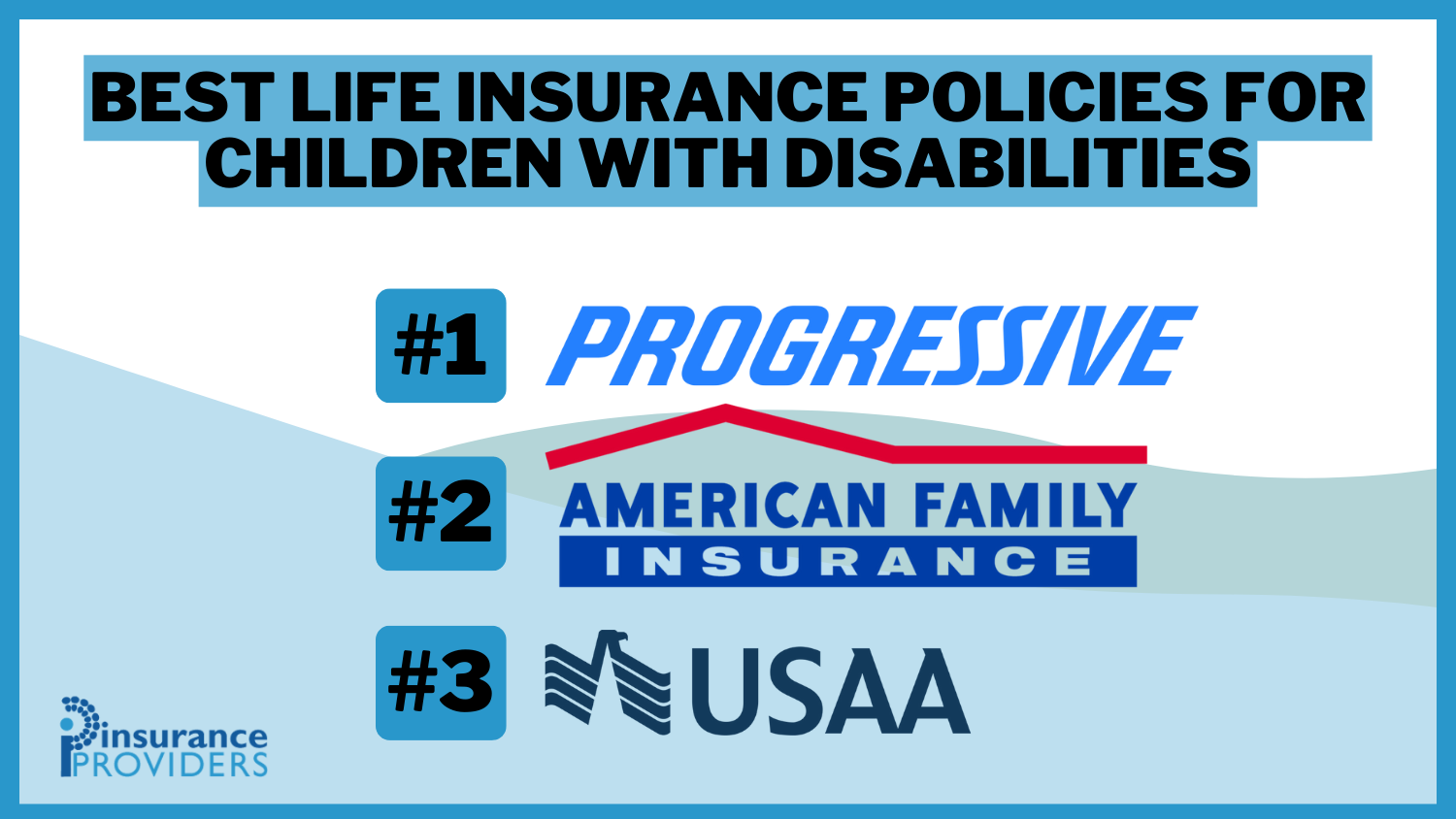How to Buy Life Insurance
Looking to secure your family's financial future? Learn the ins and outs of purchasing life insurance with our comprehensive guide on how to buy life insurance. Discover the best policies and tips for making an informed decision.
Read more Secured with SHA-256 Encryption





Table of Contents
Table of Contents


Licensed Real Estate Agent
Angie Watts is a licensed real estate agent with Florida Executive Realty. Specializing in residential properties since 2015, Angie is a real estate writer who published a book educating homeowners on how to make the most money when they sell their homes. Her goal is to educate and empower both home buyers and sellers so they can have a stress-free shopping and/or selling process. She has studi...
Angie Watts


Licensed Insurance Agent
Tim Bain is a licensed life insurance agent with 23 years of experience helping people protect their families and businesses with term life insurance. His insurance expertise has been featured in several publications, including Investopedia and eFinancial. He also does digital marking and analysis for KPS/3, a communications and marking firm located in Nevada.
Tim Bain
Updated January 2024
Life insurance is an important financial planning tool that provides financial protection to your loved ones in the event of your untimely death. Understanding the basics of life insurance is crucial before delving into the process of purchasing a policy. This article will guide you through the essential steps involved in buying life insurance, from understanding its basics to determining your needs, shopping for the right policy, and finally, applying for it.
Understanding the Basics of Life Insurance
Life insurance is an essential financial tool that provides a safety net for your loved ones in the event of your death. It is a contract between you and an insurance company, where you agree to pay regular premiums in exchange for a predetermined sum of money, known as a death benefit, to be paid to your beneficiaries upon your passing.
When you have life insurance, your beneficiaries can use the financial payout to cover various expenses that may arise after your death. This includes funeral costs, mortgage payments, and the loss of future income. By providing this financial support, life insurance can help ease the burden on your loved ones during a difficult time.
Types of Life Insurance
There are several types of life insurance policies available, each with its own unique features and benefits. Understanding the differences between these policies can help you make an informed decision about which one is right for you.
- Term life insurance: This type of policy provides coverage for a specific period, typically 10, 20, or 30 years. It offers a death benefit but does not accumulate cash value. Term life insurance is often chosen by individuals who want coverage for a specific period, such as until their mortgage is paid off or their children are financially independent.
- Whole life insurance: Unlike term life insurance, whole life insurance is a permanent policy that covers you for your entire life, as long as premiums are paid. In addition to providing a death benefit, whole life insurance also accumulates cash value over time. This means that you can borrow against the cash value or even surrender the policy for a cash payout if needed. Whole life insurance is often chosen by individuals who want lifelong coverage and the potential for cash value growth.
- Universal life insurance: Universal life insurance offers flexibility in terms of adjusting the death benefit and premium amounts to suit your changing needs. It also allows for potential cash value growth. This type of policy is often chosen by individuals who want the ability to customize their coverage and have more control over their policy.
When considering which type of life insurance policy to choose, it’s important to carefully evaluate your financial goals and circumstances. A financial advisor or insurance professional can help guide you through the decision-making process.
Why You Need Life Insurance
Life insurance plays a crucial role in providing financial security for your loved ones when you’re no longer there to provide for them. Here are a few reasons why you might need life insurance:
- Income replacement: If your family relies on your income, life insurance can replace that income if you pass away. This ensures that your loved ones can maintain their standard of living and meet their financial needs.
- Mortgage protection: For many families, the mortgage is one of the most significant financial obligations. Life insurance can help pay off your mortgage, ensuring that your family can keep their home and have a place to live without the burden of monthly mortgage payments.
- Debt repayment: Life insurance can be used to cover any outstanding debts, such as credit card balances or loans. By doing so, it prevents your loved ones from inheriting these financial obligations and allows them to start their financial journey without the burden of debt.
- Education expenses: Providing your children with a quality education is a priority for many parents. Life insurance can help fund your children’s education, ensuring that they have the financial resources to pursue their dreams and achieve a bright future.
By having life insurance, you can have peace of mind knowing that your loved ones will be financially supported even after you’re gone. It provides a layer of protection and stability during a time of emotional upheaval and can help your family navigate the financial challenges that may arise.
Free Life Insurance Comparison
Compare Quotes From Top Companies and Save
Secured with SHA-256 Encryption
Determining Your Life Insurance Needs
When it comes to life insurance, it’s important to take a comprehensive approach in evaluating your needs. While the basic factors like income, assets, and debts are crucial, there are other aspects that require careful consideration as well.
Evaluating Your Financial Situation
Before buying life insurance, it’s essential to evaluate your current financial situation. Consider factors such as your income, assets, debts, and future financial goals. Take into account your monthly expenses, including your mortgage or rent, education costs, and other ongoing financial obligations. By analyzing these aspects, you can get a clearer picture of your overall financial health and determine the appropriate coverage amount.
However, it’s not just about the numbers. Life insurance is also about providing financial security and peace of mind for your loved ones in the event of your untimely demise. It’s about ensuring that they can maintain their current lifestyle and meet their future goals even without your presence.
Considering Your Dependents
Think about who depends on you financially, such as your spouse, children, or aging parents. Assess their financial needs in your absence, including daily expenses, healthcare costs, and long-term support. The number and age of your dependents will play a significant role in determining the appropriate amount of coverage.
For example, if you have young children, you may need a higher coverage amount to account for their future education expenses. On the other hand, if your children are grown and financially independent, you may require less coverage.
Factoring in Your Debt and Expenses
Calculate your outstanding debts, including credit card balances, student loans, and car loans. Additionally, consider any future financial obligations, such as your children’s college tuition or a mortgage. It’s crucial to ensure that your life insurance coverage is sufficient to pay off these debts and cover future expenses.
Moreover, you should also think about the potential impact of inflation on your financial obligations. As time goes by, the cost of living increases, and so does the financial burden on your loved ones. Therefore, it’s wise to consider this factor when determining the coverage amount.
By taking a comprehensive approach and considering all these factors, you can make a more informed decision about your life insurance needs. Remember, life insurance is not just a financial product; it’s a means to protect your loved ones and provide them with the security they deserve.
Shopping for Life Insurance
When it comes to shopping for life insurance, it’s important to explore all your options and find the policy that best suits your needs. Life insurance can be purchased from various sources, including insurance agents, brokers, and online platforms. Each option has its own advantages and considerations.
If you prefer a personal touch and expert guidance, working with an insurance agent or broker can be beneficial. These professionals have in-depth knowledge of the insurance market and can help you navigate through the numerous policy options available. They can assess your needs, explain the different coverage types, and provide recommendations based on your specific circumstances.
On the other hand, if you prefer a more convenient and streamlined approach, online platforms offer a quick and easy way to compare policies and purchase life insurance. With just a few clicks, you can access a wide range of options, compare quotes, and even complete the application process online. This can save you time and effort, especially if you have a busy schedule.
Where to Buy Life Insurance
Regardless of the source you choose, it’s advisable to shop around and compare different policies and providers to get the best coverage and rates. Seek recommendations from friends, family, or trusted financial advisors to find reputable insurance companies. Their experiences and insights can help you make an informed decision and avoid potential pitfalls.
Read more: How to Buy Life Insurance: Expert Guide
Comparing Life Insurance Quotes
When comparing life insurance quotes, it’s important to consider various factors to ensure you’re getting the right policy for your needs. The coverage amount is one of the key aspects to evaluate. Assess your financial obligations, such as mortgage payments, debts, and future expenses, to determine the appropriate coverage level.
In addition to the coverage amount, pay attention to the premium cost and policy duration. Life insurance premiums can vary significantly depending on factors such as your age, health condition, and lifestyle habits. Make sure the premium is affordable and sustainable in the long run. Similarly, consider the policy duration and whether it aligns with your financial goals and timeline.
Furthermore, take into account any additional riders or benefits included in the policy. Riders are optional add-ons that provide extra coverage for specific events or circumstances, such as critical illness or disability. Evaluate whether these riders are relevant to your situation and if they justify the additional cost.
Understanding the details of each policy can be overwhelming, especially if you’re unfamiliar with insurance terminology. This is where a licensed insurance agent can be invaluable. They can help you decipher the jargon, explain the nuances of each policy, and assist you in making an informed decision.
Understanding Life Insurance Terms and Conditions
Before finalizing a life insurance policy, it’s crucial to carefully review and understand the terms and conditions outlined in the policy contract. This document contains important information that governs the policy, including the death benefit payout conditions, exclusions, premium payment terms, and policy cancellation provisions.
Take the time to read the policy contract thoroughly and ask questions if anything is unclear. It’s essential to have a clear understanding of what you’re signing up for and what your rights and obligations are as the policyholder. If you have any concerns or need clarification, don’t hesitate to reach out to the insurance company or your insurance agent for guidance.
Remember, life insurance is a long-term commitment, and the policy you choose will have a significant impact on your financial security and that of your loved ones. By conducting thorough research, comparing options, and understanding the terms and conditions, you can make a well-informed decision that provides peace of mind for the future.
Applying for Life Insurance
Preparing for the Life Insurance Medical Exam
Some life insurance policies require a medical exam to assess your overall health and determine your insurability. To prepare for the exam, be sure to get a good night’s sleep, avoid strenuous activities, and refrain from consuming alcohol or nicotine before the appointment. Providing accurate medical information during the exam is essential to ensure the policy’s validity.
During the medical exam, a trained professional will evaluate your health by conducting various tests and measurements. These may include taking your blood pressure, checking your cholesterol levels, and assessing your body mass index (BMI). The results of these tests will help the insurance company assess your risk profile and determine your premium rates.
It is important to note that the medical exam is not meant to be invasive or uncomfortable. The examiner will prioritize your comfort and privacy throughout the process. If you have any concerns or questions, don’t hesitate to communicate them to the examiner.
Filling Out the Life Insurance Application
Complete the life insurance application accurately and truthfully. Be prepared with personal information, such as your contact details, social security number, and beneficiary designations. Take your time to thoroughly review the application before submitting it, as any errors or omissions could affect the policy’s coverage or claim payout.
When filling out the application, you may be asked to provide details about your occupation, lifestyle habits, and any pre-existing medical conditions. It is crucial to disclose all relevant information to the best of your knowledge. Failure to disclose accurate information could result in the denial of claims in the future.
Moreover, some insurance companies offer the option to include additional riders or benefits to enhance your coverage. These may include critical illness coverage, disability income protection, or even a return of premium feature. Consider your specific needs and discuss these options with your insurance agent to determine if they are suitable for you.
Read more: Does your occupation affect the price of life insurance?
Waiting for Approval
After submitting the application, it may take some time for the insurance company to review your information and make a decision. The underwriting process can vary in duration, depending on the complexity of your application and the insurer’s procedures. Be patient and follow up with the insurance company if necessary. Once approved, make sure to review your policy documents to understand the coverage and payment terms fully.
During the underwriting process, the insurance company will evaluate your application and assess the level of risk you present. Factors such as your age, health condition, and lifestyle choices will be taken into account. In some cases, the insurer may request additional medical records or information from your healthcare providers to make an informed decision.
It is important to note that the underwriting process is designed to protect both the insurer and the policyholder. By carefully assessing the risk associated with each applicant, the insurance company can ensure that the premiums charged are fair and reflective of the coverage provided.
Once your application is approved, you will receive your policy documents, which outline the terms and conditions of your coverage. It is crucial to review these documents thoroughly to understand the extent of your protection, the premium amounts, and any exclusions or limitations that may apply.
In conclusion, buying life insurance is an important step in securing your family’s financial future. By understanding the basics, assessing your needs, shopping wisely, and applying correctly, you can find the right life insurance policy that offers the necessary protection and peace of mind. Remember, life insurance is not only an investment in your family’s security but also a testament to your love and care for them.
Frequently Asked Questions
What is life insurance?
Life insurance is a contract between an individual and an insurance company, where the individual pays regular premiums in exchange for a lump sum payment to their beneficiaries upon their death.
Why do I need life insurance?
Life insurance provides financial protection for your loved ones in the event of your death. It can help cover funeral expenses, outstanding debts, mortgage payments, and provide income replacement for your family.
How much life insurance coverage do I need?
The amount of life insurance coverage you need depends on various factors such as your current income, outstanding debts, future financial goals, and the needs of your dependents. It is recommended to evaluate your financial situation and consult with an insurance professional to determine the appropriate coverage amount.
What are the different types of life insurance?
There are several types of life insurance, including term life insurance, whole life insurance, universal life insurance, and variable life insurance. Each type has its own features and benefits, so it’s important to understand them before making a decision.
How do I choose the right life insurance policy?
Choosing the right life insurance policy involves considering your financial goals, budget, and the needs of your beneficiaries. It’s advisable to compare quotes from different insurance providers, review the policy terms and conditions, and seek guidance from a knowledgeable insurance agent.
Can I buy life insurance online?
Yes, many insurance companies offer the option to buy life insurance online. You can compare quotes, review policy details, and complete the application process conveniently from the comfort of your home. However, it’s still recommended to thoroughly research the company and policy before making a purchase.
Get a FREE Quote in Minutes
Insurance rates change constantly — we help you stay ahead by making it easy to compare top options and save.




